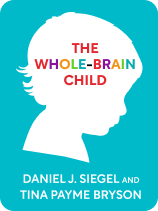

This article is an excerpt from the Shortform book guide to "The Whole-Brain Child" by Daniel J. Siegel and Tina Payne Bryson. Shortform has the world's best summaries and analyses of books you should be reading.
Like this article? Sign up for a free trial here .
What are the most common myths about memory? How do memory myths keep you from making sense of your past experiences?
There are a few common myths about memory that hinder people’s ability to understand and manage their memories. Just like the other brain functions, when you know how your brain stores and processes memories, you can prevent them from controlling you.
Here are 2 most common myths about memory debunked.
Myths About Memory Function
Myth #1: One of the most common myths about memory is that it is akin to a filing cabinet that holds an organized record of all your life experiences. In reality, memory is a network of associations you make among the thoughts, emotions, and physical sensations that comprise an experience.
Every experience causes neurons (brain cells) to fire off electrical signals in response to particular smells, sights, tastes, sounds, sensations, emotions, or thoughts. For example, certain neurons fire because your child hears a whistle, others fire in response to the anxiety she feels because her swim instructor is forcing her to jump into the deep end. All those neurons firing at the same time become linked in the brain, creating associations—your swim instructor blowing the whistle for you to jump in the pool—which you recall as a memory.
The more often certain neurons fire together, the stronger the association becomes. Eventually, one sensation triggers your child to expect the second sensation, and she can’t hear a whistle without feeling anxious. In other words, your child’s past experiences and the associations they’ve created directly impact how she perceives each present moment.
Myth #2: Have you ever been talking about a shared memory with a friend and found out that she remembers the event differently? Memories are not accurate records of events—in fact, every time you remember something, the act of recalling the memory alters it.
Just as your mood and thoughts during the experience become encoded as part of the memory, your state of mind when you recall the event becomes associated with the memory, as well. Sometimes the mood and environment you’re in when you remember something can alter the memory significantly.

———End of Preview———
Like what you just read? Read the rest of the world's best book summary and analysis of Daniel J. Siegel and Tina Payne Bryson's "The Whole-Brain Child" at Shortform .
Here's what you'll find in our full The Whole-Brain Child summary :
- How to increase your child's self-awareness and emotional control
- Why the logical and emotional sides of the brain have to work together
- How to figure out why your child is afraid of something






